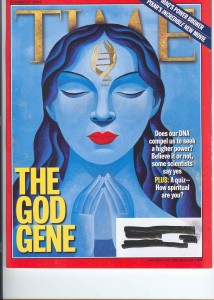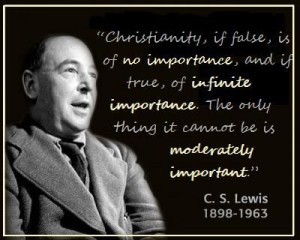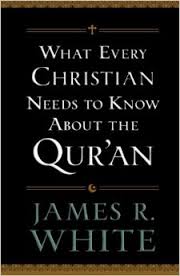- ABOUT
- ARGUMENTS – EXISTENCE OF GOD
- The Argument from Contingency
- Cosmological Argument
- Moral Argument
- Ontological Argument
- Teleological/Design/Fine-tuning Argument
- Pascal’s Wager
- The Argument from Religious Experience
- The Argument from Miracles
- The Argument from Consciousness
- The Argument from Truth
- The Argument from Desire
- The Argument from Aesthetic Experience
- HISTORICITY – RESURRECTION
- CHRISTIANITY & ISLAM
- APOLOGETICS
From the article: “The moment I mention “apologetics” among a group of Christians, I get one of two reactions.
There are the apologetics fans who get very excited. They read every apologetics book, listen to every apologetics podcast and attend every apologetics conference. They are convinced that apologetics is the key to the effectiveness of the church.
Then there are those are turned off by apologetics. They may believe that people today are more concerned with experience and community rather than truth claims. They fear that apologetics, if effective at all, will lead to a passionless intellectual religion.
In navigating these extremes, it may be helpful to have a working definition of apologetics.
John Stackhouse, professor of Religious Studies at Crandall University, sees apologetics in this way…” For the complete article, here.
If you haven’t already availed yourself of the excellent, arguments for the existence of God, Reasonable Faith video series, I would encourage you to do so. They are concise (a little over 5 minutes in length) and an excellent quick review for those of us who are on a busy schedule. They are also an excellent teaching tool for children as they are in an animated format, which of course helps to keep the child’s attention.
The following is one of the four videos available in the series:
For the complete series, go here
Happy viewing!
For more resources on a wide range of topics, visit the Reasonable Faith web site at: www.reasonablefaith.org
For more on the arguments for the existence of God, visit the Arguments-Existence of God section at the home page of this site.
I would like to make a plug for James R. White’s book, What Every Christian Needs to Know About the Qur’an. It is a valuable resource, both for the Christian, as well as the Muslim, in understanding the background, historical context, and claims of the Quran.
I will include here an excerpt from the section of the book entitled, The Quran’s Stand Against History:
“When it comes to the cross, the Qu’ran stands firmly and inalterably against the mass of historical evidence and the almost universal view of the populace of its day. But it does so in only one ayah (verse), one single verse, of forty Arabic words. It provides no explanation, no context, no defense. Here is the text:
4:156. And because of their disbelief and of their speaking against Mary a tremendous calumny.
157. And because of their saying: “We slew the Messiah, Jesus son of Mary, Allah’s Messenger.” They slew him not, nor crucified him, but it appeared so to them; and those who disagree concerning it are in doubt thereof; they have no knowledge of it except the pursuit of a conjecture; [but] certainly they slew him not.
158. But Allah raised him up to Himself. Allah is August, Wise.
…So there forty Arabic words stand alone in the Qur’an. They stand alone without commentary in the hadith literature as well. They stand against not only the natural reading of other Qur’anic texts but also against the entire weight of the historical record. Forty Arabic words written six hundred years after the events they describe, more than seven hundred fifty miles from Jerusalem. Forty Arabic words that are not clear, not perspicuous, and yet this is the entirety of the foundation up which the Islamic faith bases its denial of the crucifixion, and hence, resurrection of of Jesus Christ.
Consider, in closing, what this says about the Qur’an. Nothing in it suggests its author had even the slightest knowledge of the New Testament centrality of God’s redeeming act of Christ on the cross. The author knew nothing of Paul’s epistle to the Romans or the book of Hebrews and their in-depth case for and teaching about the Messiah’s redeeming death. The author seems blissfully unaware for the evidentiary mountain that substantiates the crucifixion. And yet with a few seconds of oral recitation, the Qur’an places itself, and all who would believe in it, in the direct opposition not only to the Injil (Gospel) but also every thing history itself says on the subject. The question must be asked: Who, truly, is following mere conjecture here? Those who were eyewitnesses on the Hill of the Skull outside of Jerusalem? Or the author of the Qur’an, more than half a millennium later?” (end of excerpt) [1]
[1] James R. White, What Every Christian Needs to Know About the Qur’an, pg. 137, 142, Bethany House Publishers, 2013
For more on this topic see the following articles on this site:
The question: Why was Jesus crucified? ‘What think ye of Christ? Whose son is he?’-Matt. 22:42
Historicity of the Crucifixion & the Law of Non-contradiction
“It is very nearly four decades since, as a terribly callow graduate student with an interest in philosophy, I made a pilgrimage with a friend to the home of a professor of Christian apologetics. I was looking for direction, and even though Cornelius Van Til had been retired for many years, he was known to welcome inquirers—whom he often greeted on his front porch with a rake in hand, suggesting that perhaps they could pile-up his leaves for him before they talked.
I was hoping to hear an intimidating, intellectually-convoluted, scholastic, metaphysical strategy for blowing the philosopher’s version of Gideon’s trumpet. Van Til, then pushing 80 stood with his hard white comb of hair brushed back from his cliff-like brow, and the smile of an old Dutch dairy farmer (which his father had been). I asked, “Dr. Van Til, why did you decide to devote your life to the study of philosophy and the teaching of apologetics?”
And I then sat back to allow the metaphysics free room to roll. Van Til never blinked.
“Why,” he said, “to protect Christ’s little ones.” Complete article here
For conference information, here
 In a recent survey, conducted by LifeWay Research, a rather surprising result came to the fore—[72% of Americans overall] 46 percent of nones and/or non-religious— agree that: “Since the universe has organization, I think there is a creator who designed it.” Interesting result considering that Darwinian evolution/naturalism is the only ‘game in town’ being taught within the vast majority of nations educational systems. It seems that regardless of the degree of suppression that is applied, God’s revelation via his creation continues to manifest itself, even in the minds of the non-religious. As British astrophysicist, Paul Davies has stated, “There is for me powerful evidence that there is something going on behind it all….It seems as though somebody has fine-tuned nature’s numbers to make the universe….The impression of design is overwhelming.” (More on the teleological argument for the existence of God, here)
In a recent survey, conducted by LifeWay Research, a rather surprising result came to the fore—[72% of Americans overall] 46 percent of nones and/or non-religious— agree that: “Since the universe has organization, I think there is a creator who designed it.” Interesting result considering that Darwinian evolution/naturalism is the only ‘game in town’ being taught within the vast majority of nations educational systems. It seems that regardless of the degree of suppression that is applied, God’s revelation via his creation continues to manifest itself, even in the minds of the non-religious. As British astrophysicist, Paul Davies has stated, “There is for me powerful evidence that there is something going on behind it all….It seems as though somebody has fine-tuned nature’s numbers to make the universe….The impression of design is overwhelming.” (More on the teleological argument for the existence of God, here)
Another surprise was that: [79 percent overall] 43 percent of nones and/or non-religious say they agree that “The fact that we exist means someone created us.” Again, we find the inner awareness and need for relationship with a personal transcendent Creator. C. S. Lewis once said that, “The relationship between God and man is more private and intimate than any possible relation between two fellow creatures.”
Even the moral argument for God’s existence made a reasonable showing with [66 percent overall] and 33 percent of nones and/or non-religious agreeing that “Since people have morality, I think there is a creator who defines morality.” The dip here can easily be traced to the relativism that has permeated the societies of the world, and particularly that of Western culture. The ‘true for you, but not for me…all paths lead to God’ ideology has so eroded objective truth and moral values, that one is hard pressed to find even a kernel of such within society today.
Blaise Pascal said it well, “Truth is so obscured nowadays and lies [are] so well established that unless we love the truth we shall never recognize it.” And he was living in the 17th century—how much more is this true of the world today. Stephen McAndrew gives the reason as to why many people do not hold to objective truth and moral values, “The reason many are loathe to acknowledge the possibility of absolute truth is not simply because they do not wish to accept the possibility of the existence of an all-powerful, all-knowing deity. It is because they do not want to accept the consequences that follow from the existence of an all-powerful, all-knowing deity as the source of absolute moral truth.”
I found the LifeWay survey of particular interest as it is a confirmation of that which John stated in his Gospel, “In him (Jesus/Logos) was life, and that life was the light of all mankind.” (John 1:4 NIV) All persons are endowed by God with a certain degree of light by God as their Creator, having been created in His image. (Gen. 1:26, 27), hence the aptitude and perception of a large percentage of even the non-religious to acknowledge design and/or a Designer of the universe, a connection with a personal Creator, and that Creator being the grounding for objective moral values and truth. Solomon wisely wrote, “He has made everything beautiful in its time. He has also set eternity in the human heart; yet no one can fathom what God has done from beginning to end.” (Ecc. 3:11) God has placed eternity, that is, a sense that life continues beyond this present existence, into man’s heart, yet so that he cannot find out what God has done from the beginning to the end. The word “find,” or “find out” (Hb. matsa’) has the sense of “figure out, comprehend by study” in this verse and other places in the book (7:14, 24, 26, 27, 28, 29; 8:17). The Preacher thus realizes that both his desire to understand all of life, as well as the limitations on his ability to do so, have been ordained by God. [1]
Paul’s speaks to this desire within mankind to know and find God and how that desire is God given, “And he made from one man every nation of mankind to live on all the face of the earth, having determined allotted periods and the boundaries of their dwelling place, that they should seek God, and perhaps feel their way toward him and find him. Yet he is actually not far from each one of us…” (Acts 17:26-27 ESV)
The LifeWay survey also highlights what the apostle Paul so aptly stated in the first century A.D. in his letter to the church in Rome. He states that all persons have the light of God’s revelation via His creation. God has given everyone the opportunity of observing and concluding two things about Himself: His wisdom and power. As per the survey results, we can conclude that a sizeable percentage of persons, conclude that Someone wise, as well as personal, must have put the natural world together, and He must be very powerful.
So how should these survey results impact today’s follower of Christ, the One that we profess to be, “the Way, the Truth and the Life?” (John 14:6) Ed Stetzer offers the following challenge in light of the survey results:
“…nonreligious people believe the same at a surprisingly high rate. This points to the possibility of a lot of conversations — if Christians would just have those conversations — telling people about the Creator that they see in creation….“Christians love evangelism, as long as someone else is doing it. So, the openness is there. The question is if the conversation will be started.”
Reference
[1] ESV study notes
For complete article, Religious or not, many Americans see a creator’s hand, by Cathy Lynn Grossman, here
More on being the “salt and light” of the world, here and here
You can also contact the author of this article at: 4Lane.davis@gmail.com
Southern Evangelical Seminary (SES) in Matthews, NC, is preparing for its 22nd Annual National Conference on Christian Apologetics, set for October 16-17 at Calvary Church in Charlotte, NC.
The conference will focus on “Ideas Have Consequences: The Bigger the Idea, the Bigger the Consequence” and equipping Christians to answer questions about their beliefs rationally and intelligently as they explore the various facets of apologetics.
For the complete line-up of speakers at the upcoming conference, along with more information, visit conference site here
 We all have a ‘comfort zone,’ one that is defined by the people, places, things, routines and habits that are familiar to us. Most of us become UN-comfortable when someone, or a set of circumstances moves us out of our comfort zone and into new territory, a territory that we sense will bring with it new challenges and changes in our lifestyle. As a Christian, it is often about moving from passivity to action, that of embracing an active, engaged and evangelistic Christian lifestyle. Moving from passivity to activity and engagement is where the uncomfortableness will manifest itself and one will experience strong resistance in stepping outside that which threatens to disrupt their comfort zone. Being active and engaging is what I call the “salt and light lifestyle,” two familiar metaphors that Jesus used to illustrate the influence that he expected of his followers to have in the world. (Matt. 5:13-16) Embracing the “salt and light lifestyle,” that of taking the points of our Christian worldview and articulating them to those whose lives we touch, is what I call, “where the rubber meets the road Christianity.” Jesus taught a “verbalized Gospel,” not just a “we will show them we are Christians by our love,” Gospel. Yes, Jesus did say, “By this all people will know that you are my disciples, if you have love for one another” (John 13:34-35), but this spiritual dynamic is only applicable when non-believers are observing a meeting or gathering of two or more believers. In order to make our witness a comprehensive one, we must do the one, but not leave the other undone, that of “loving our neighbor as ourselves,” one of the two Great Commandments. (Matt. 22:36-40)
We all have a ‘comfort zone,’ one that is defined by the people, places, things, routines and habits that are familiar to us. Most of us become UN-comfortable when someone, or a set of circumstances moves us out of our comfort zone and into new territory, a territory that we sense will bring with it new challenges and changes in our lifestyle. As a Christian, it is often about moving from passivity to action, that of embracing an active, engaged and evangelistic Christian lifestyle. Moving from passivity to activity and engagement is where the uncomfortableness will manifest itself and one will experience strong resistance in stepping outside that which threatens to disrupt their comfort zone. Being active and engaging is what I call the “salt and light lifestyle,” two familiar metaphors that Jesus used to illustrate the influence that he expected of his followers to have in the world. (Matt. 5:13-16) Embracing the “salt and light lifestyle,” that of taking the points of our Christian worldview and articulating them to those whose lives we touch, is what I call, “where the rubber meets the road Christianity.” Jesus taught a “verbalized Gospel,” not just a “we will show them we are Christians by our love,” Gospel. Yes, Jesus did say, “By this all people will know that you are my disciples, if you have love for one another” (John 13:34-35), but this spiritual dynamic is only applicable when non-believers are observing a meeting or gathering of two or more believers. In order to make our witness a comprehensive one, we must do the one, but not leave the other undone, that of “loving our neighbor as ourselves,” one of the two Great Commandments. (Matt. 22:36-40)
Now, let’s pause and ‘flip the coin,’ asking ourselves, “what would I want this person (a colleague at work, a fellow student, my neighbor, etc.) to do for me if our roles were reversed?” The answer is obvious—“I would want them to love me as they love themselves and obey the Great Commission that Christ gave them to bring me the Gospel. I would want them to set aside their pride, their fear of rejection and embarrassment, to move outside of their comfort zone so as to present me with the saving knowledge of the Lord and Savior, Jesus Christ.” On this score, Jesus didn’t leave any wiggle room for his followers: “And he said to ALL, “If anyone would come after me, let him deny himself and take up his cross daily and follow me. For whoever would save his life will lose it, but whoever loses his life for my sake will save it. For what does it profit a man if he gains the whole world and loses or forfeits himself? For whoever is ashamed of me and of my words, of him will the Son of Man be ashamed when he comes in his glory and the glory of the Father and of the holy angels. (Luke 9:23-26) These are some of the most uncomfortable words that Jesus spoke. Jesus was constantly moving people out of their comfort zones and down uncomfortable paths, not the least of which was the call to the occupation of fishing—“Follow me and I will make you fishers of men.” (Matt. 4:19) What I find to be a vital point in this discourse is that it was addressed to ALL which leaves no wiggle room for excusing away the instruction that follows, after all, a disciple is one who is a follower of the teaching. Jesus’ words are a call to forsake the first impediment to evangelism, which is pride and/or a lack of humility, through “denying oneself and taking up their cross daily,” and having done so, to then follow him in “bringing forth fruit that remains.” (John 15:16)
Renowned evangelist, John Stott, offers the following analysis and responsibility of a Christian to break out of one’s comfort zone and embrace the “salt and light lifestyle.”
“Like salt in putrefying meat, Christians are to hinder social decay. Like light in the prevailing darkness, Christians are to illumine society and show it a better way. It’s very important to grasp these two stages in the teaching of Jesus. Most Christians accept that there is a distinction between the Christian and the non-Christian, between the church and the world. God’s new society, the church, is as different from the old society as salt from rotting meat and as light from darkness. But there are too many people who stop there; too many people whose whole preoccupation is with survival—that is, maintaining the distinction. The salt must retain its saltiness, they say. It must not become contaminated. The light must retain its brightness. It must not be smothered by the darkness. That is true. But that is merely survival. Salt and light are not just a bit different from their environment. They are to have a powerful influence on their environment. The salt is to be rubbed into the meat in order to stop the rot. The light is to shine into the darkness. It is to be set upon a lamp stand, and it is to give light to the environment. That is an influence on the environment quite different from mere survival.” [1]
In his article, Listening to Young Atheists: Lessons for a Stronger Christianity, Larry Taunton shares the following illumining testimony of what unbelievers expect of a Christian–“Following our 2010 debate in Billings, Montana, I asked Christopher Hitchens why he didn’t try to savage me on stage the way he had so many others. His reply was immediate and emphatic: “Because you believe it.” Without fail, our former church-attending students expressed similar feelings for those Christians who unashamedly embraced biblical teaching. Michael, a political science major at Dartmouth, told us that he is drawn to Christians like that, adding: “I really can’t consider a Christian a good, moral person if he isn’t trying to convert me.” As surprising as it may seem, this sentiment is not as unusual as you might think. It finds resonance in the well-publicized comments of Penn Jillette, the atheist illusionist and comedian: “I don’t respect people who don’t proselytize. I don’t respect that at all. If you believe that there’s a heaven and hell and people could be going to hell or not getting eternal life or whatever, and you think that it’s not really worth telling them this because it would make it socially awkward…. How much do you have to hate somebody to believe that everlasting life is possible and not tell them that?” Comments like these should cause every Christian to examine his conscience to see if he truly believes that Jesus is, as he claimed, “the way, the truth, and the life.” [2]
A Christian does not have to be a learned theologian, an articulate evangelist, or an outstanding apologist to step outside their comfort zone and embrace an engaging, evangelistic lifestyle. If you feel inadequate, then for God’s sake, and the sake of the lost, DO something about it! Move outside your comfort zone and begin setting aside the time to “do your best to present yourself to God as one approved, a worker who has no need to be ashamed, rightly handling the word of truth. (2 Timothy 2:15) Charlie Campbell gets to the core of the issue, that of “denying oneself and taking up their cross,” through preparative study, the study that will enable the Christian to speak the Word of God boldly—“Can you imagine being an ambassador for your country and neglecting to prepare yourself for the common questions that people ask about your homeland? That would be irresponsible. You’d be without a job very quickly. God tells us that we are His ambassadors (2 Cor. 5:20). Seeing that that is the case, I think it is important that every Christian consider the following question: Am I ready to answer the common questions people ask about God? Am I ready to explain to someone why I believe the Bible is trustworthy? 1 Peter 3:15 says that we are to be ready to give a defense of our faith. Are you ready? Sadly, many Christians watch more TV in a week than they’ll spend in a year preparing themselves to answer questions about God and the Bible. Don’t leave defending the faith to your pastor. The church needs an army of saints who are able to articulate the truth persuasively and graciously. We are all called to “contend earnestly for the faith” (Jude 3).” (See the home page of this site for apologetic site resources, as well as here for more resources.)
 Quaker divine, Rufus M. Jones, put it beautifully when he said, “What he needs is better organs to reveal himself through, richer, truer, holier lives to show his love through, more finely organized personalities for his grace to break through into the world. He cannot do his work without us. He cannot preach without our lips, comfort without our help, heal without our hands, carry the truth without our feet, remove the shadow without our faith and effort. The invisible works through the visible, the unseen and eternal operates through little instruments like us!” [3]
Quaker divine, Rufus M. Jones, put it beautifully when he said, “What he needs is better organs to reveal himself through, richer, truer, holier lives to show his love through, more finely organized personalities for his grace to break through into the world. He cannot do his work without us. He cannot preach without our lips, comfort without our help, heal without our hands, carry the truth without our feet, remove the shadow without our faith and effort. The invisible works through the visible, the unseen and eternal operates through little instruments like us!” [3]
If you don’t know where to start in your study program, I highly recommend the following resources:
On Guard—William Lane Craig–order here
Tactics—A Game Plan for Discussing Your Christian Convictions—Gregory Koukl–order here
Conversational Evangelism—How to listen and speak so you can be heard, Norman Geisler–order here
Cold-case Christianity, J. Warner Wallace–order here
Also, see two other articles on this site, The Intellectual Ostrich, Pt. 1 and Pt. 2, for more on living the “salt and light” lifestyle.
[1] John Stott, Four Ways Christians Can Influence the World—How we can be salt and light, Christianity Today, October, 20, 2011, article here
[2] Larry Taunton, Listening to Young Atheists: Lessons for a Stronger Christianity, complete article here.
[3] Rufus M. Jones, The World Within, The MacMillan Company, 1918, pg.12
You can also contact the author at: 4Lane.davis@gmail.com
The Urban Youth Workers Institute describes itself as “a national nonprofit organization that trains and resources urban youth workers to effectively evangelize and disciple youth in at-risk zip codes throughout the U.S.” The UYWI’s primary goal is “to engage 75,000 urban youth in life-changing discipleship with local youth workers by 2020.”
A big part of moving that initiative along is the recently-unveiled Discipleship Toolkit, a free resource compiled of conversation-starting videos, leader guides and student handouts that include an introduction to the Gospel, discipleship support and apologetics resources. It also helps leaders track the progress of students in the areas of spirituality, self, family, community, and education.
Acosta, along with partner D.A. Horton, presented the Discipleship Toolkit at UYWI’s RELOAD event in Brooklyn on Sept. 12. He took some time to talk with The Christian Post about the mission of his ministry, why churches need to invest in their youth workers, and trends he has noticed over the last 17 years in his field.
The transcript below has been edited for clarity.
Both the New Testament (NT) and the Quran’s account of Jesus’ crucifixion, agree on one thing: there was a crucifixion and Jesus, or Isa al-Masih as he is referred too in the Quran, was at the center of the event. (For more on this topic see, The Historicity of the Crucifixion & the Law of Non-contradiction, here) However, one point in which the NT and Quran’s accounts differ is that of addressing the question, “What was the reason and/or origin of the crucifixion event?” After all, a Roman crucifixion didn’t happen in a vacuum, there were reasons as to why someone was condemned and executed in this most barbarous way. According to Cicero, the Roman statesman who died about 40 years before Jesus was born, crucifixion was not to be spoken or even thought of by Roman citizens. He states, “Far be the very name of a cross, not only from the body, but even from the thought, the eyes, the ears of Roman citizens.” Thus, a Roman cross, now cherished by millions, was, at one time, not a subject fit for polite Roman conversation. Jewish historian, Josephus, a witness to many a crucifixion, called it “the most wretched of deaths.” [1] So again we ask, why was Jesus condemned to death by crucifixion?
The Quran offers little, if any historical information, as to why Jesus was condemned to die by means of crucifixion. What the Quran does offer, is the denial of two historically verifiable facts: (1) Jesus’ crucifixion and (2) His claim(s) to deity. Regarding Jesus claim to deity, which is the focus of this article, Muslim apologists, such as Ahmad Deedat, often state that Jesus is never reported to have said, “I am God,” or “Worship me.” It is therefore presumed that, since Christ never stated this, Christians are wrong in worshiping Jesus as God. However, this claim from Islamic apologists breaks down quickly when we once again ask the question, what was the reason and/or origin of the crucifixion event?
One needs to search no further than the records of the trials of Jesus to answer this question.
 In Mark 14, Caiaphas, the high priest at the time, asked Jesus, “Are you the Christ, the Son of the Blessed?,” Jesus’ reply was, “I am. And you will see the Son of Man sitting at the right hand of the Power, and coming with the clouds of heaven.” And the high priest tore his garments and said, “What further witnesses do we need? You have heard his blasphemy. What is your decision?” And they all condemned him as deserving death. (Mark 14:61-64) Muslim apologists, such as Shabir Ally, will often claim that Jesus’ claim to divinity/deity cannot be found in the gospel of Mark and that it was therefore advanced over time by the gospels according to Matthew, Luke and finally John, and later by the early Church fathers. One need only read the narratives of the three Gospel writers to see that this is patently false. As an example, compare Matthew’s account with that of Mark’s above—“And the high priest said to him, “I adjure you by the living God, tell us if you are the Christ, the Son of God.” Jesus said to him, “You have said so. But I tell you, from now on you will see the Son of Man seated at the right hand of Power and coming on the clouds of heaven.” Then the high priest tore his robes and said, “He has uttered blasphemy. What further witnesses do we need? You have now heard his blasphemy. What is your judgment?” They answered, “He deserves death.” (Matthew 26:63-66)
In Mark 14, Caiaphas, the high priest at the time, asked Jesus, “Are you the Christ, the Son of the Blessed?,” Jesus’ reply was, “I am. And you will see the Son of Man sitting at the right hand of the Power, and coming with the clouds of heaven.” And the high priest tore his garments and said, “What further witnesses do we need? You have heard his blasphemy. What is your decision?” And they all condemned him as deserving death. (Mark 14:61-64) Muslim apologists, such as Shabir Ally, will often claim that Jesus’ claim to divinity/deity cannot be found in the gospel of Mark and that it was therefore advanced over time by the gospels according to Matthew, Luke and finally John, and later by the early Church fathers. One need only read the narratives of the three Gospel writers to see that this is patently false. As an example, compare Matthew’s account with that of Mark’s above—“And the high priest said to him, “I adjure you by the living God, tell us if you are the Christ, the Son of God.” Jesus said to him, “You have said so. But I tell you, from now on you will see the Son of Man seated at the right hand of Power and coming on the clouds of heaven.” Then the high priest tore his robes and said, “He has uttered blasphemy. What further witnesses do we need? You have now heard his blasphemy. What is your judgment?” They answered, “He deserves death.” (Matthew 26:63-66)
Here, in the NT Gospel narratives, we find the answer to our question—What was the reason and origin of the crucifixion event?—it was Jesus Christ’s claim to deity. There would have been no other reason for Caiaphas to have rent his robe and for the leaders of the Sanhedrin to condemn Jesus to death. They didn’t care if Jesus ‘stirred up the people,’ or if he ‘forbade people to pay tribute/taxes to Caesar,’ but his claim to deity as the “Christ, the Son of God,” was an entirely different matter, and it was because of Christ’s claim to deity that he was condemned and charged with blasphemy, a charge worthy of death under Jewish law. The rending of the high priest’s robe is yet another confirmation of Christ’s claim to deity which was clearly understood by the High Priest. H. B. Swete explains the significance of this response, “The law forbade the High Priest to rend his garment in private troubles (Lev.10:6; 21:10), but when acting as a judge, he was required by custom to express in this way his horror of any blasphemy uttered in his presence…If trustworthy evidence was not forthcoming, the necessity for it had now been superseded; the Prisoner had incriminated Himself.” [2] Frank Morrison concurs, “But we have still to consider the other outstanding feature of this remarkable trial. Jesus of Nazareth was condemned to death, not on the statements of His accusers, but on an admission extorted from Him under oath.” (Frank Morrison, Who Moved the Stone?, Zondervan, 1987)
Judge Gaynor, the accomplished jurist of the New York bench, in his address upon the trial of Jesus, maintains that blasphemy was the one charge made against Jesus before the Sanhedrin: “It is plain from each of the gospel narratives, that the alleged crime for which Jesus was tried and convicted was blasphemy…Jesus had been claiming supernatural power, which in a human being was blasphemy…” (citing John 10:33). [3] Concerning the question of the Pharisees, A. T. Robertson says, “Jesus accepts the challenge and admits that He claims to be all three (the Messiah, the Son of Man, the Son of God). Ye say (Humeislegete), is just a Greek idiom for ‘Yes’ (compare ‘I AM’ in Mark 14:62 with ‘Thou hast said’ in Matthew 26:64. [4] Hilarin Felder adds, “This inspection of the trial of Jesus should be sufficient to give us the invincible conviction that the Savior confessed His true divinity before His judges. [5]
Even though Jesus’ answers to His judges take a different form in each of the Synoptics, we see, as Morison tells us, that they all are equal in meaning: “These answers are really identical. The formulae ‘Thou has said’ or ‘Ye say that I am,’ which to modern ears sound evasive, had no such connotation to the contemporary Jewish mind. ‘Thou sayst’ was the traditional form in which a cultivated Jew replied to a question of grave or sad import. Courtesy forbade a direct ‘yes’ or ‘no.’” [6]
In Mark 14:61-64, Jesus puts two Messianic prophecies together in one sentence—Daniel 7:13-14 and Psalm 110:1—which could not be misunderstood or misinterpreted. These prophecies did not simply predict the coming of an earthly Messiah who would restore Israel to its former and eternal glory, but they were explicit in establishing the Messiah as equal to God (Ancient of Days), the Son of God (son of man) as Daniel clearly states, “I saw in the night visions, and behold, with the clouds of heaven there came one like a son of man, and he came to the Ancient of Days and was presented before him. And to him was given dominion and glory and a kingdom, that all peoples, nations, and languages should serve him; his dominion is an everlasting dominion, which shall not pass away, and his kingdom one that shall not be destroyed. (Daniel 7:13-14 ESV) When the Son of Man receives worship or service the word in the original Aramaic (the language that Daniel 7 was written in) is pelach. The evidence affirming that according to Daniel and the Old Testament this refers to unique divine service or worship which is due to God alone is strong. The Brown-Driver-Briggs Hebrew and English Lexicon assigns to pelach the following meaning: “pay reverence to, serve (deity)” [7], and it attaches the latter meaning to Daniel 7:14’s use of the word as well. Stephan R. Miller is in agreement, and in his commentary on Daniel notes that “… in every other instance where the verb פְּלַח (‘worship’; ‘serve,’ NRSV) occurs in biblical Aramaic (nine times), it has reference to service (worship) rendered a deity (Dan 3:12, 12, 17-18, 28; 6:16[17], 20[21]; 7:14; Ezra 7:24).” [8]
Regarding the Pharisees reaction to Jesus appropriating these Messianic prophecies to himself, it is clear that they were familiar with these prophecies and the implications of a person claiming them for themselves, and that they understood exactly what Jesus was claiming—deity, which in their eyes was blasphemy. Later, in reply to Pilate asking, “Why, what has he done?”, they confirmed the reason for their condemnation of Jesus when they stated, “We have a law, and according to that law he ought to die because he has made himself the Son of God.” (Mark 15:14)
F. F. Bruce, writes, “It is implied, if not expressly stated, that in Daniel’s vision this being was enthroned…[Jesus] linked these two scriptures when the high priest of Israel challenged him to declare his identity.” [9] William Childs Robinson concludes that “each of these [three] affirmations is distinctly Messianic. Their cumulative Messianic effect is ‘stunningly significant.” [10]
German theologian Horst Georg Pohlmann, offers the following regarding Jesus enunciating an implicit Christology, putting himself in God’s place:
This unheard of claim to authority, as it comes to expression in the antitheses of the Sermon on the Mount, for example, is implicit Christology, since it presupposes a unity of Jesus with God that is deeper than that of all men, namely a unity of essence. This…claim to authority is explicable only from the side of his deity. This authority only God himself can claim. With regoard to Jesus there are only two possible modes of behavior; either to believe that in him God encounters us or to nail him to the cross as a blasphemer. Tertium non datur.[11]
 There is only one reason, and one reason only for the crucifixion event of Jesus, Isa al-Masih, to have taken place, and that is Jesus’ claim to deity. Again, the missing piece of the puzzle in the Quran’s crucifixion account is the exact reason for the event to have taken place at all. The Muslim world has tried to explain the particulars of the event, such as Jesus was about to be arrested and crucified, someone else was suddenly made to look exactly like him and was crucified in his place. A potential list of persons range from Judas Iscariot, to Simon of Cyrene, or one of his disciples to one of the Roman soldiers (all these have been suggested in different Muslim writings as possible victims of the transformation). However, there is simply NO historical evidence to sustain hypothesis’ of this kind, a ‘minor detail’ that is overlooked by the Muslim community. However, even if one is to believe such unsubstantiated claims, as most of the Muslim community does, that would not answer the question: “What was the reason for, and/or origin, of the crucifixion event?”
There is only one reason, and one reason only for the crucifixion event of Jesus, Isa al-Masih, to have taken place, and that is Jesus’ claim to deity. Again, the missing piece of the puzzle in the Quran’s crucifixion account is the exact reason for the event to have taken place at all. The Muslim world has tried to explain the particulars of the event, such as Jesus was about to be arrested and crucified, someone else was suddenly made to look exactly like him and was crucified in his place. A potential list of persons range from Judas Iscariot, to Simon of Cyrene, or one of his disciples to one of the Roman soldiers (all these have been suggested in different Muslim writings as possible victims of the transformation). However, there is simply NO historical evidence to sustain hypothesis’ of this kind, a ‘minor detail’ that is overlooked by the Muslim community. However, even if one is to believe such unsubstantiated claims, as most of the Muslim community does, that would not answer the question: “What was the reason for, and/or origin, of the crucifixion event?”
There is only one answer to the question—the claims to deity of Jesus Christ Himself.
And when Jesus saw their faith, he said to the paralytic, “Son, your sins are forgiven.” Now some of the scribes were sitting there, questioning in their hearts, “Why does this man speak like that? He is blaspheming! Who can forgive sins but God alone?” And immediately Jesus, perceiving in his spirit that they thus questioned within themselves, said to them…, “But that you may know that the Son of Man has authority on earth to forgive sins”—he said to the paralytic—“I say to you, rise, pick up your bed, and go home.” And he rose and immediately picked up his bed and went out before them all, so that they were all amazed and glorified God, saying, “We never saw anything like this!” (Mark 2:5-12 ESV)
I and My Father are one.—John 10:25
My Father…and I have been working.—John 5:17
Jesus said to them, “Most assuredly, I say to you, before Abraham was, I AM.”—John 8:58
The disciples “worshipped him, saying: ‘of a truth thou art the Son of God.”—Matthew 14:33
Thomas answered him, “My Lord and my God!”—John 20:28
(See videos below for further discussion on the topic)
References:
[1] Weylan Deaver, Crucifixion, http://www.shermandrive.org/article_archives/041512-crucifixion-weylandeaver.pdf
[2] H. B. Swete, The Gospel according to St. Mark, London: Macmillan, 1898, pg. 339
[3] Charles E. Deland, The Mis-Trials of Jesus, Boston: Gadger, 1914, pg. 118-19
[4] A. T. Robinson, Word Pictures in the New Testament, Nashville: Broadman, 1930, pg. 277
[5] Hilarin Felder, Christ and the Critics, Trans. John L Stoddard, London: Burns, Oates, & Washburn, 1924, pg. 299-300
[6] Frank Morrison, Who Moved the Stone?, London: Faber & Faber, 1967, pg. 26
[7] Francis Brown, S. R. Driver, Charles A. Briggs, The Enhanced Brown-Driver-Briggs Hebrew and English Lexicon, [Clarendon Press: Oxford, 1906], p. 2718
[8] Stephen R. Miller, Daniel, New American Commentary, [B&H Publishing Group, 1994], p. 217
[9] F. F. Bruce, The Real Jesus: Who Is He? In The Jesus Library. Ed. Michael Green. London: Hodder & Stroughton, 1985, pg. 64-65
[10] William C. Robinson, ed. Who Say Ye That I Am?, Grand Rapids, MI: Eerdmans, 1949, pg. 65
[11] Horst Georg Pohlmann, Abriss der Dogmatik, 3d rev. ed. (Gutersloh, Germany: Gerd Mohn, 1980), pg. 230
Special thanks to Josh McDowell—his book, Evidence for Christianity—Historical Evidences for the Christian Faith, Thomas Nelson, 2006, was a valuable resource. I recommend this book to all.
Summary of the Deity of Christ in the Gospel of Mark-James R. White
Jesus Trial before the Sanhedrin-reenactment of the trial from the movie, Jesus of Nazareth
You can also contact the author of this article at: 4Lane.davis@gmail.com
(There are a number of contradictions in the Quran, as well as the Hadith, regarding Jesus’ life and death which can be further researched at: http://www.answering-islam.org/Responses/Meherally/mehB7_0.htm)


